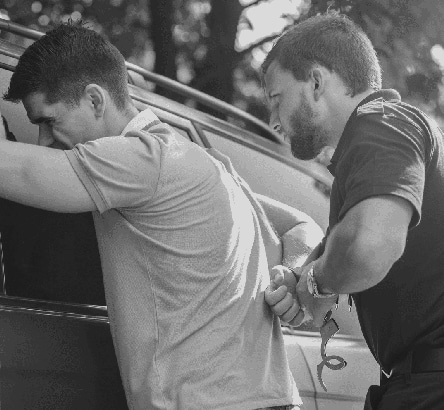Can Police Use Deadly Force Against Unarmed Suspects?
There are emotional and legal complexities surrounding incidents where police exhibit excessive force against an unarmed individual. These situations can be highly traumatic for the victim and their family, primarily when they result in serious injury or death. When navigating the aftermath of an incident, it is vital to understand your rights and the legal frameworks that govern law enforcement actions.
Police are held to a legal standard and have a duty of care to prevent unjustified harm. If you or a loved one has been harmed by an officer’s unjustified use of deadly force, do not hesitate to contact us today. We can connect you with a compassionate attorney who can review your case and determine whether you may be eligible for compensation.
Content Last Updated: May 9, 2025
Key Takeaways
- Legal Standards and Rights: Police can only use deadly force under specific conditions, and it may or may not be illegal if an assailant is unarmed.
- Civil Liability and Legal Recourse: Victims can pursue justice through civil lawsuits under statutes such as 42 U.S. Code § 1983 and file complaints with oversight bodies. The article stresses the importance of legal counsel and offers guidance on documenting and filing complaints.
- Recent Cases and Accountability Trends: High-profile cases of unarmed individuals show limited criminal accountability despite civil settlements. Increasing police fatalities are fueling public demand for reforms, including de-escalation training and greater transparency.
When Is Police Use of Deadly Force Considered Legal?
While police can be held accountable for illegal actions, some situations warrant deadly force under the law. Justification for these types of tactics includes the following:
- The presence of an immediate threat to the officer or others.
- The severity of the crime committed by the suspect.
- Whether the suspect is actively resisting arrest or attempting to evade by flight.
Just because a suspect is unarmed does not automatically preclude the use of deadly force so long as the officer perceives a significant threat. However, such perceptions must be objectively reasonable. This means the officer must show that a reasonable officer in a similar situation would believe the initial officer’s level of force was appropriate. This standard does not depend on a single officer’s personal convictions regarding the situation. Rather, it turns on whether another person in the same position would react similarly.


Can Police Be Held Civilly Liable for Using Deadly Force on Unarmed People?
The following amendments to the U.S. Constitution protect against the use of excessive force by law enforcement:
The Fourth Amendment
Under the Fourth Amendment, officers cannot unreasonably search and seize a suspect’s property. In court, many excessive force claims are framed as unlawful seizure.
The Eighth Amendment
The Eighth Amendment protects individuals against cruel and unusual punishment. This can apply to various contexts, but it is especially common in cases involving incarcerated parties, such as excessive force in jails and prisons.
The Fourteenth Amendment
Arbitrary government actions that deprive individuals of life, liberty, or property violate the Fourteenth Amendment. When a loved one dies as a result of police brutality without due process, the surviving family may invoke this amendment in court to seek justice.
When police officers and departments violate these constitutional rights by using unjustified deadly force, they can be held civilly liable under 42 U.S. Code § 1983. In addition, surviving family members may be eligible to pursue wrongful death claims under that law over the deaths of loved ones from excessive deadly force.
It is essential to consult a civil rights attorney with experience in police misconduct cases. The lawyers we work with at the Police Brutality Center possess the necessary skill set and knowledge to effectively navigate your case from start to finish. Contact us today to learn more about our services and how we can support you and your family.
Legal Recourse for Victims and Families
If you or a family member has experienced any form of police brutality, you have options to pursue justice. First, you must file a complaint with the relevant law enforcement agency or civilian oversight board. In your complaint, you will need to include as much information as possible, including the following:
- Your name and contact info
- Date, time, and location of the incident
- Names and badge numbers of officers
- Witnesses and their contact info
- Any injuries or property damage
It is essential to note that you can request anonymity when filing a complaint, and any retaliation by an officer is strictly prohibited. Contact us for more information on the legal options available to those affected by police misconduct and whether you may be entitled to pursue a civil action or other remedies.
Recent Incidents and Legal Outcomes
In various instances, police officers have faced civil liability for employing deadly force against unarmed individuals. Some recent cases have made national headlines, including those of George Floyd, Breonna Taylor, and several others.
George Floyd – Minneapolis, MN
In 2020, George Floyd died after Officer Derek Chauvin knelt on his neck for over 9 minutes, despite being unarmed. As a result, Chauvin was convicted of murder and manslaughter.
Breonna Taylor – Louisville, KY
In another 2020 case, Breonna Taylor was shot and killed during a no-knock warrant execution at her apartment. She was unarmed and asleep. Despite this tragedy, no officers were convicted of criminal charges over her death. One officer was charged and acquitted on endangerment charges.
Walter Scott – North Charleston, SC
An unarmed man named Walter Scott was shot in the back and killed after fleeing from a traffic stop in 2015. Officer Michael Slager pleaded guilty to federal civil rights charges and was sentenced to 20 years. In a civil lawsuit, Scott’s family obtained a $6.5 million settlement from the city.
Tamir Rice – Cleveland, OH
While holding a toy gun, 12-year-old Tamir Rice was shot and killed by officers arriving at the scene. While no charges were filed against the involved police in this 2014 case, the city paid Rice’s family $6 million.
Eric Garner – Staten Island, NY
In 2014, Eric Garner was stopped for allegedly selling untaxed cigarettes. He was unarmed when Officer Daniel Pantaleo used a banned chokehold on him, resulting in Garner’s death. Pantaleo was fired, but no criminal charges were filed. However, in a civil case, Garner’s family received $5.9 million.
Growing Trends in Civilian Fatalities
The number of individuals shot and killed by law enforcement has steadily increased over the past 8 years. In 2017, 981 people reportedly died from police shootings. By 2024, that number had increased to 1,173. Unfortunately, the trend continues to grow as more and more civilian fatalities take place.
The above cases, among many others, indicate that the majority of police brutality cases go without criminal legal repercussions for the offending officer. There is an inconsistency with accountability when police who engage in misconduct are simply terminated from their positions or not held liable at all.
The lack of accountability in police brutality cases is leading to a growing demand for reform, including mandatory de-escalation training, increased transparency, and revisions to use-of-force policies. In addition, an increasing number of victims’ families are pursuing legal action, resulting in more lawsuits and influencing policy changes within police departments.
Contact Us Today If You Were a Victim of Deadly Force
It is crucial to understand your legal rights and the available avenues for seeking justice and support. We encourage you to take informed action and utilize the available resources to address grievances related to the use of deadly police force.
Call Policy Brutality Center today for more information.

